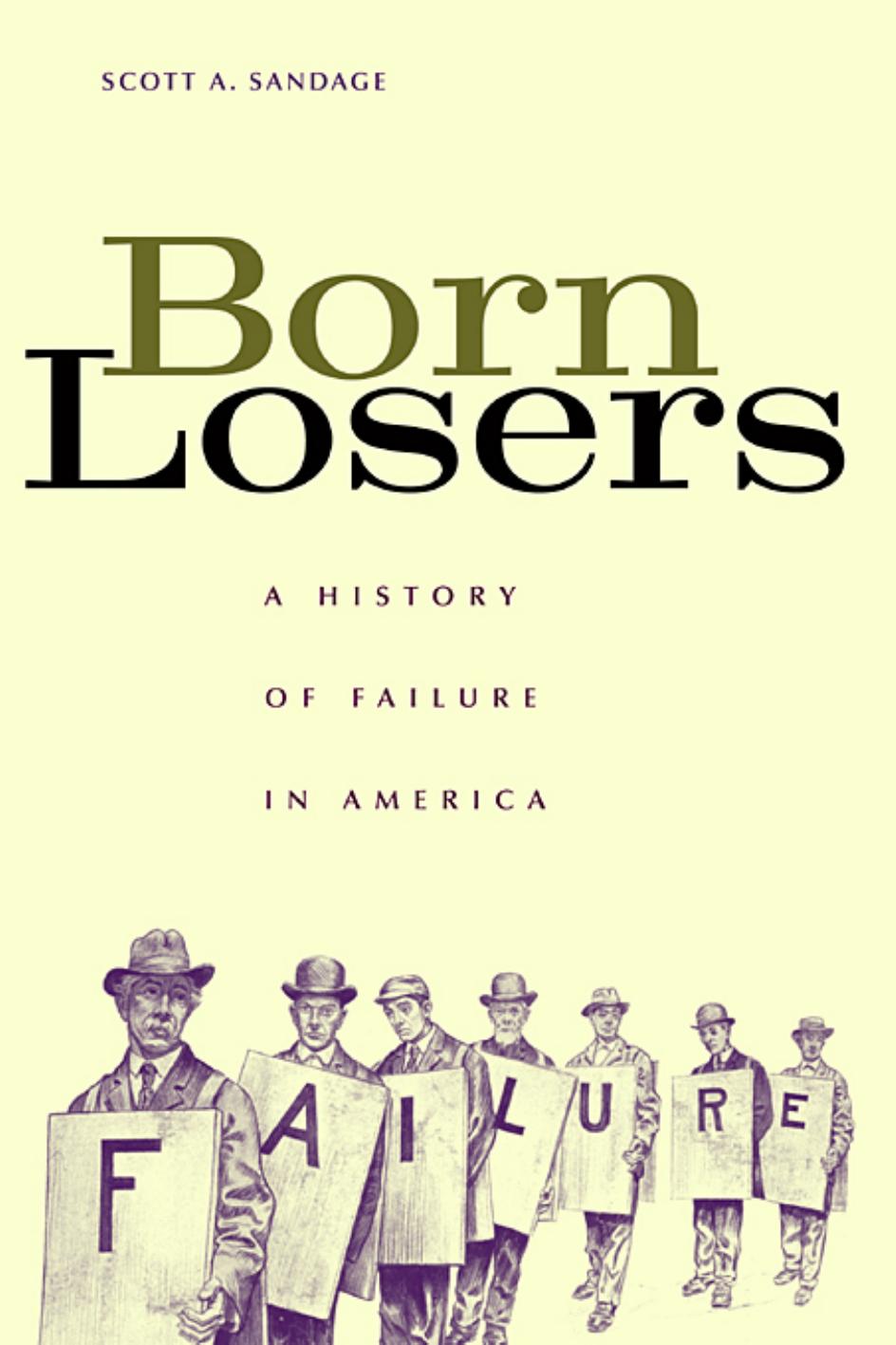Born Losers: A History of Failure in America by Scott A. Sandage & Scott A Sandage

Author:Scott A. Sandage & Scott A Sandage [Sandage, Scott A. & Sandage, Scott A]
Language: eng
Format: epub, pdf
Tags: Americas (North; Central; South; West Indies), General, 19th Century, history, United States
ISBN: 9780674015104
Google: XPRbV0JeBecC
Publisher: Harvard University Press
Published: 2005-11-15T00:35:15.904551+00:00
This anti-Whig pamphlet from the 1840 presidential campaign portrayed small debtors at the mercy of commercial interests. (âWhite Slavery!! Or Selling White Men for Debt!â Lexington, Ky., 1840. Printed Ephemera Collection, Rare Book and Special Collections Division, Library of Congress.)
A Beggarsâ Banquet at Delmonicoâs
Many traders had fresh scars from the bust of 1857 when the boom of 1861âat Fort Sumterâhit them again. Few bills got paid across enemy lines, and all but 16 of 256 New York dry goods firms went broke within a year. The âbankrupts of â61,â according to R. G. Dun & Co., included almost 7,000 firms that owed more than $5,000 each. During the next four years, the patronizing line âno fault of their ownâ became patriotic, and people spoke of men being âruined by the War.â Many proprietors and breadwinners deserted firms and farms to join Union companies. In 1862, the New-York Times ran a plea for Congress to pass a stalled bankruptcy bill, âthis great Emancipation measure for the liberation of white men.â In January 1863, abolitionist Representative Owen Lovejoy declared, âAs this is a year of jubilee to those literally enslaved, so let it be signalized by the disinthrallment of those who are entangled by pecuniary obligations.â The antislavery Independent wrote the next year that âone hundred thousand good business menâmostly white menâare now in bondage, praying, at the doors of Congress, that their chains may be broken. They love freedom [as much as] black men.â For decades, debtors and their political friends had urged the government to use the Constitution to make men free, only to see the Jubilee pass over them. âTo President Lincoln,â one citizen wrote in April 1864: âI am one of the victims who lost my property in the South and ask to be released from my shackles and try to recover myself.â Lincoln no doubt recalled the mess created by the Bankruptcy Act of 1841, having handled many cases as a young lawyer. But as president, bankruptcy legislation hardly merited his attention. In 1864, unending war and unpopular emancipation threatened his reelection chances. Public opinion turned so sour that Lincoln tried to suppress a commentary written by the powerful editor Horace Greeley, which made reference to âour bleeding, bankrupt, almost dying country.â14
Bankrupt citizens who had written to Lincoln and been ignored gladly turned their pens toward Thomas A. Jenckes when his legislation came up for debate in the winter and spring of 1864. For perhaps the first time, hundreds of losers got to tell their individual stories in the context of national politics. They wrote from Iowa, Illinois, Minnesota, Michigan, Ohio, Texas, Virginia, Maryland, Pennsylvania, New Jersey, New Hampshire, Maine. One of the first letters Jenckes received, in February, blathered on for three angry pages. âIf the administration could know the feelings of the thousands who are tied in stronger chains than the Black man ever was, they would as a matter of policy (if not of justice) remove the shackles from off us,â the writer argued.
Download
Born Losers: A History of Failure in America by Scott A. Sandage & Scott A Sandage.pdf
This site does not store any files on its server. We only index and link to content provided by other sites. Please contact the content providers to delete copyright contents if any and email us, we'll remove relevant links or contents immediately.
| Africa | Americas |
| Arctic & Antarctica | Asia |
| Australia & Oceania | Europe |
| Middle East | Russia |
| United States | World |
| Ancient Civilizations | Military |
| Historical Study & Educational Resources |
Machine Learning at Scale with H2O by Gregory Keys | David Whiting(4293)
Never by Ken Follett(3937)
Fairy Tale by Stephen King(3370)
Oathbringer (The Stormlight Archive, Book 3) by Brandon Sanderson(3157)
The Man Who Died Twice by Richard Osman(3072)
Will by Will Smith(2911)
Rationality by Steven Pinker(2352)
Can't Hurt Me: Master Your Mind and Defy the Odds - Clean Edition by David Goggins(2323)
The Dark Hours by Michael Connelly(2300)
Friends, Lovers, and the Big Terrible Thing by Matthew Perry(2219)
The Dawn of Everything: A New History of Humanity by David Graeber & David Wengrow(2197)
Principles for Dealing With the Changing World Order: Why Nations Succeed and Fail by Ray Dalio(2039)
A Short History of War by Jeremy Black(1842)
HBR's 10 Must Reads 2022 by Harvard Business Review(1839)
Go Tell the Bees That I Am Gone by Diana Gabaldon(1754)
A Game of Thrones (The Illustrated Edition) by George R. R. Martin(1722)
Kingdom of Ash by Maas Sarah J(1668)
515945210 by Unknown(1660)
443319537 by Unknown(1545)
